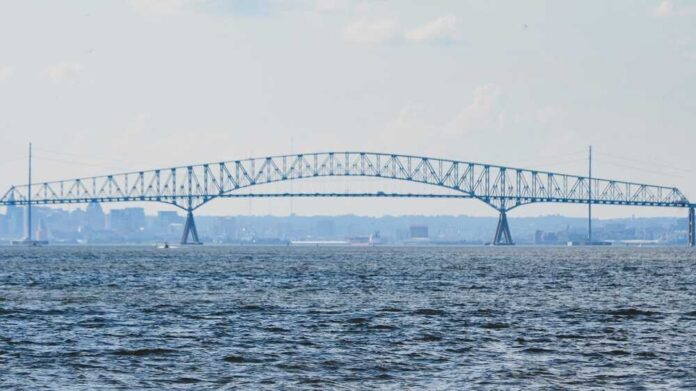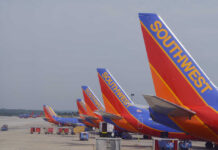The Francis Scott Key Bridge, which collapsed this week after a huge freight ship crashed into it, will be rebuilt using federal money, President Joe Biden announced this week.
Early Tuesday morning, the bridge that spans over water on I-696 in Baltimore, collapsed when a freight ship that had containers stacked high on its deck lost power and crashed into it. People and cars that were on the bridge at the time fell into the river below, and six construction workers are presumed to have died.
As a result of the bridge collapse, one of America’s busiest ports will be closed until further notice.
Just like he’s done for a few other major transportation catastrophes recently, Biden said that the federal government will absorb the entire cost to rebuild the bridge.
On Tuesday, Biden spoke to reporters from the White House, saying:
“It’s my intention that the federal government will pay for the entire cost of reconstructing that bridge, and I expect the Congress to support my effort.”
Two survivors were pulled out of the Patapsco River by rescuers, and one was sent to the hospital. They were still searching for additional survivors who fell into the icy waters below the bridge after huge metal spans crumpled at about 1:30 a.m. The bridge spans 1.6 miles.
Speaking directly to loved ones of some of the people who fell from the bridge, Biden said:
“I know every minute in that circumstance feels like a lifetime.”
The president added that the operation of search and rescue “is our top priority.”
In addition to the Baltimore Harbor being closed, the collapse of the Francis Scott Key Bridge will have significant impacts on road traffic. It was a main passageway for drivers coming from the New York area to Washington, D.C., if they wanted to avoid driving through downtown Baltimore.
It’s one of only three ways that drivers can cross over the Baltimore Harbor, and has a traffic volume of about 31,000 cars every day, which equates to about 11.3 million cars per year.
Biden was asked directly why the federal government should foot the bill for the reconstruction of the bridge, especially if the ship and the operator of it were ultimately to blame for the accident.
He responded:
“That could be, but we’re not going to wait for that to happen. We’re going to pay for it to get the bridge rebuilt and opened.”
Typically, huge infrastructure projects such as this are paid for with funds from both the federal government and state government.
In June 2023, a bridge on I-95 in Philadelphia reopened only a few weeks after a massive fire caused parts of it to crumble and completely close one of the main eastern arteries.
The project, which had a total cost estimated between $25 to $30 million, used $7 million in emergency state funds and another $3 million in federal disaster funding from the Federal Highway Administration.


















